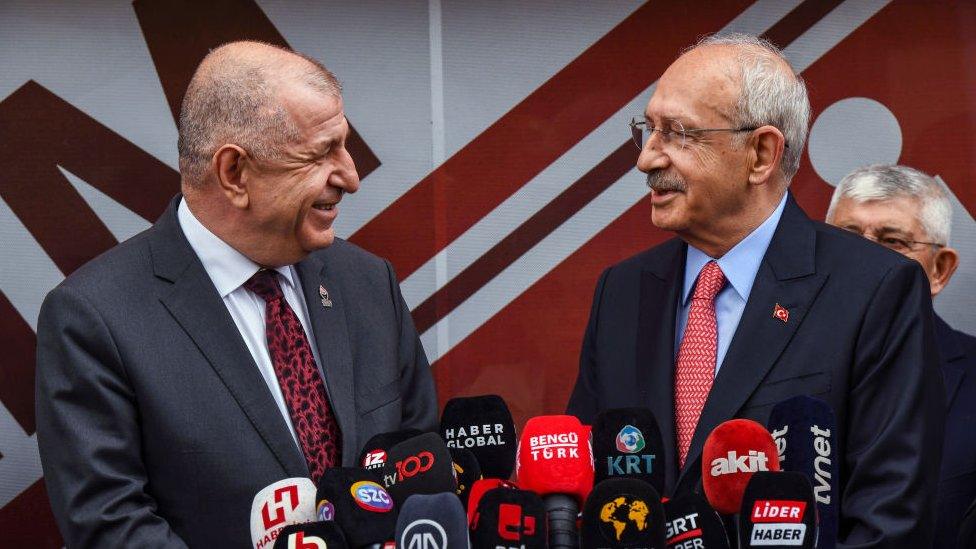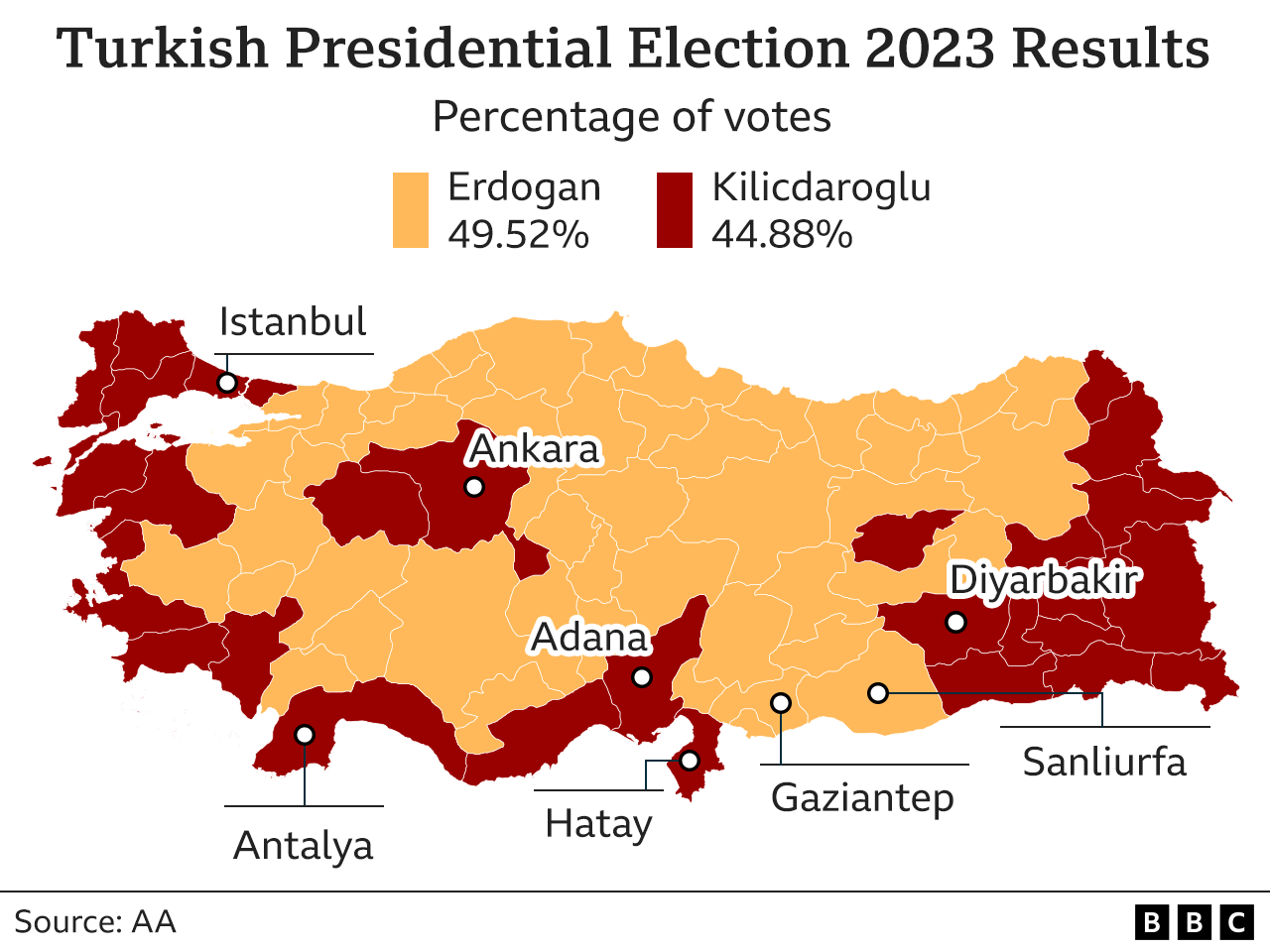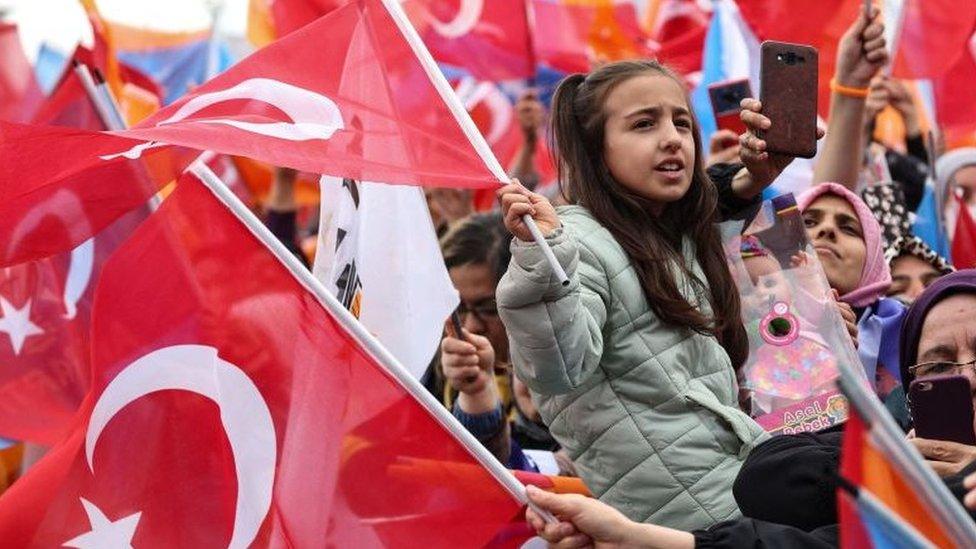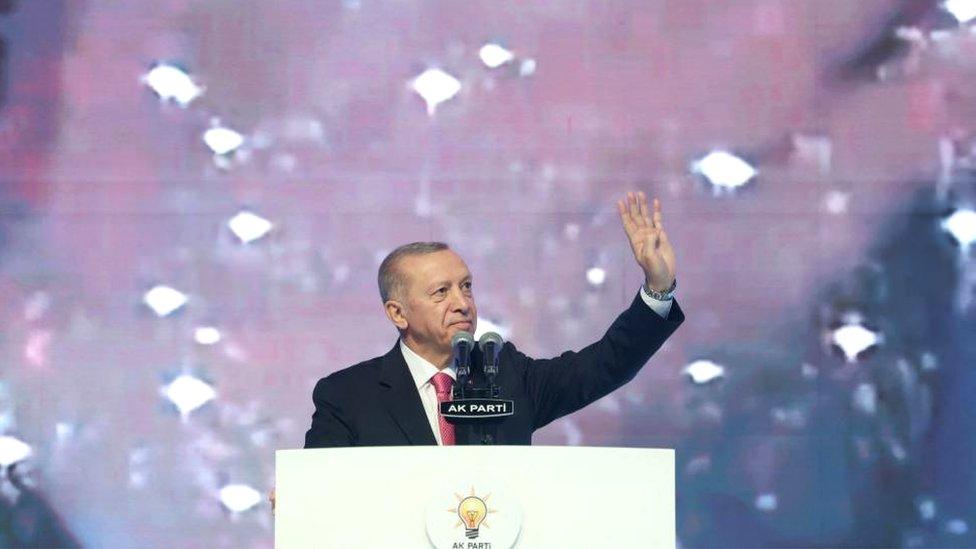Turkish elections: Anti-immigrant leader endorses Erdogan challenger
- Published

Far-right Turkish leader Umit Ozdag has endorsed opposition candidate Kemal Kilicdaroglu for the Turkish presidency.
The opposition challenger is running against Recep Tayyip Erdogan in the 28 May presidential run-off.
Mr Ozdag said they had agreed on a plan to send millions of migrants back to their countries within a year.
President Erdogan is favourite to win Sunday's vote, having won almost half the vote in the first round.
Mr Ozdag, who leads the Victory Party, said he had held similar talks with Mr Erdogan, but decided against endorsing him because his plans did not involve repatriating migrants.
His decision contrasts sharply with that of his ultranationalist ally, Sinan Ogan, who won nearly 2.8 million votes as third candidate for the presidency and earlier this week pledged his support for President Erdogan.
Turkey hosts the most refugees in the world, with 3.5 million Syrians under temporary protection. But many Syrians are living there unofficially and irregular migrants have also arrived from Afghanistan, Iran and Pakistan.
In the run-up to the second round, Mr Kilicdaroglu has doubled down on his pledge to send Syrians home within two years, and he has accused President Erdogan of letting 10 million refugees in. Mr Erdogan has promised to accelerate the voluntary repatriation one million Syrians.
Mr Kilicdaroglu was chosen to run for president by an alliance of six opposition parties, but fell 2.5 million votes short of Mr Erdogan on 14 May and needs to attract voters who either backed Sinan Ogan in the first round or did not vote at all.
Mr Ozdag said he had agreed a seven-point plan with the opposition challenger that involved sending back all "refugees and fugitives", especially Syrians, to their home countries within a year - "in line with international law and human rights". He said Turkey's biggest problem was "13 million refugees and fugitives".
Prof Murat Erdogan, who runs the Syrians Barometer, has estimated there are at most six million refugees and irregular migrants in Turkey.

Mr Erdogan's AK Party has been in power since November 2002, and he has ruled Turkey since 2003, first as prime minister and later as president.
After a failed coup in 2016 he cracked down on dissent, detaining tens of thousands of people, and revamped the presidency as a more authoritarian role with sweeping powers.
Mr Kilicdaroglu's allies had been confident of unseating the president with a promise to hand powers back to parliament, but he faces an uphill task in overturning Mr Erdogan's first-round lead.
He is also backed by the main pro-Kurdish party which makes up 10% of the vote.
As part of the agreement with the far-right Victory Party leader, the six-party Nation Alliance is said to have approved a deal saying that all "terrorist organisations will be fought", including the Kurdish militant group PKK.
That could affect Mr Kilicdaroglu's bid for Kurdish voters to give him their support.
- Published25 May 2023

- Published23 May 2023
